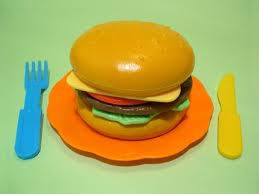San Francisco recently banned happy meal toys and other states and cities including Wisconsin and New York City have expressed interest in following the course set in San Fran.
Leroy Comrie, a deputy leader at New York City council is proposing to follow the ban with one of his own. The ban would prohibit restaurants from giving away toys with meals which contain more than 500 calories, 600mg of sodium and 35% of calories from fat. If the law is passed the ban would see happy meals and similar of their ilk banned from doling out toys by 2012.
Comrie said that he recognized that ensuring children had access to nutritious food is ultimately the responsibility of parents and caregivers the City Council can help empower parents by making it more difficult for fast food industry to target children with “predatory” marketing techniques.
Clearly aware of the chief argument against such bans, that government over reaching its responsibilities by telling people what they should and shouldn’t eat and what they can or can’t feed to their children. That argument is rebutted by the fact that the ban doesn’t affect the food itself, any of the ingredients packaging or marketing, it simply stops the restaurant from putting a toy in with the meal. No-one is suggesting that adults shouldn’t be allowed to buy happy meals for their children if they want them, if children only want happy meals for the toys then that’s a different issue. Indeed, the ban would actually reward restaurants for putting together healthier which would be able to carry toys which are then sold for children.
Additionally, the idea that it’s not government’s place to dictate what should and shouldn’t be made available to eat is misleading. Of course the government dictates food standards, the legal limits of additives that are put into food, labeling and marketing. Plus they have the power to levy taxes and subsidies foods as they see fit. To me that sounds like control of what’s available for us to eat.
So why do city councils and states want to ban toys from foods, whether or not they have an impact on childhood obesity?
A recent study found that the country is 390,000,000 pounds overweight. That’s the equivalent weight of nearly 3,000 battle tanks or three battleships. Maj. Gen. Jack C. Wheeler (ret.) who has a part in the Healthy, Hunger Free Kids Act 2010 points out that fully a quarter of young adults are too fat to join the military and many of those who do make it in have to drop out due to obesity related health issues. In Georgia, where he now lives, 20% of all children are reckoned to be clinically obese, h says: “our state [has]the second-highest childhood obesity rate in the country. Over the past
three decades, these numbers have skyrocketed, as have our children long-term health risks from diet-related diseases like diabetes, heart disease and certain types of cancer.”
He and more than 200 other high ranking military officials backed the Healthy Hunger Free Kids Act as it provides legislation which would critically influence the standards of food sold in schools. The problem many schools faced was the restrictively tight budgets that are spent on school meals, nutritional training and the facilities where food is prepared.
The act proposes that schools who reach its standards will be reimbursed with an extra 6c per meal. But while some schools only have the facilities to re-heat pre-packaged foods or rely on deep fat fryers there is little they can do in order to reach the required levels to win that extra 6c. If congress would help them upgrade their kitchens then the financial returns would be seen as fewer children relied on the state for care for their health in later life. But should we really be thinking of the economics of putting decent food in front of our children?
Dan Cash is a cfeatures writer who visits the UK from time to time and was impressed by some of the takeaways in Brighton particularly. Many offer nutritional and dietary information on their menus so you know what you’re eating. So eating pizza in Brighton can be part of a healthy, nutritious eating regime. Just!



I lost 70 pounds when I began drinking a soy protein shake with fruit every morning rather than eating a fatty breakfast or nothing at all. I have kept my weight off for 15 years due to the appropriate nutrition I chose to eat. A child who learns this will grow up to be a pleased adult. Trust me.
The social and psychological problems of childhood obesity are perhaps even far more intrusive on the child’s life than the physical. Childhood can be a critical time for the development of self-esteem, thus the psychological issues faced by an overweight child places even a lot more urgency on the prevention of the problem.